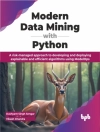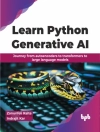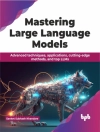Web services technologies are advancing fast and being extensively deployed in many di?erent application environments. Web services based on the e Xt- sible Markup Language (XML), the Simple Object Access Protocol (SOAP), andrelatedstandards, anddeployedin Service-Oriented Architectures(SOAs) are the key to Web-based interoperability for applications within and across organizations. Furthermore, they are making it possible to deploy appli- tions that can be directly used by people, and thus making the Web a rich and powerful social interaction medium. The term Web 2.0 has been coined to embrace all those new collaborative applications and to indicate a new, “social” approach to generating and distributing Web content, characterized by open communication, decentralization of authority, and freedom to share and reuse. For Web services technologies to hold their promise, it is crucial that – curity of services and their interactions with users be assured. Con?dentiality, integrity, availability, anddigitalidentitymanagementareallrequired.People need to be assured that their interactions with services over the Web are kept con?dential and the privacy of their personal information is preserved. People need to be sure that information they use for looking up and selecting s- vicesiscorrectanditsintegrityisassured.Peoplewantservicestobeavailable when needed. They also require interactions to be convenient and person- ized, in addition to being private. Addressing these requirements, especially when dealing with open distributed applications, is a formidable challenge.
表中的内容
Web Service Technologies, Principles, Architectures, and Standards.- Web Services Threats, Vulnerabilities, and Countermeasures.- Standards for Web Services Security.- Digital Identity Management and Trust Negotiation.- Access Control for Web Services.- Secure Publishing Techniques.- Access Control for Business Processes.- Emerging Research Trends.
关于作者
Elisa Bertino is professor of Computer Science and Electrical and Computer Engineering, and research director of the Center for Education and Research in Information Assurance and Security (CERIAS) at Purdue University. She has carried out extensive research on various security topics, such as foundations of access control systems, security for location-based applications, security for web services, digital identity management, data privacy, security and privacy for healthcare applications and for GIS; and has given numerous presentations and tutorials on these topics in scientific conferences. Recently, she recently received the IEEE Computer Society 2005 Kanai award for her research in security for distributed systems. She has also served as a member of the Microsoft Trustworthy Computing Academic Advisory Board.
Lorenzo D. Martino is visiting assistant professor at the Computer and Information Technology (C&IT) department of Purdue University and at the Cyber Center of the Purdue University. He has carried out research on trust negotiation techniques and security for web services.
Federica Maria Francesca Paci is a Ph D Student at the University of Milan, Italy. Her main research interests include the development of access control models for constraint workflow systems, Web services access control models and secure distribution of XML documents. She has published several refereed journal and conference papers in these areas.
Anna Squicciarini is a post doctoral research associate in the Computer Science Department of Purdue University. She conducts research on security for distributed systems, with particular focus on trust management, identity management and access control for grids and Web Services. She has published several refereed journal and conference papers in these areas. She has been the main architect of the Trust-X system, an innovative system supporting trust negotiation in distributed open systems.












